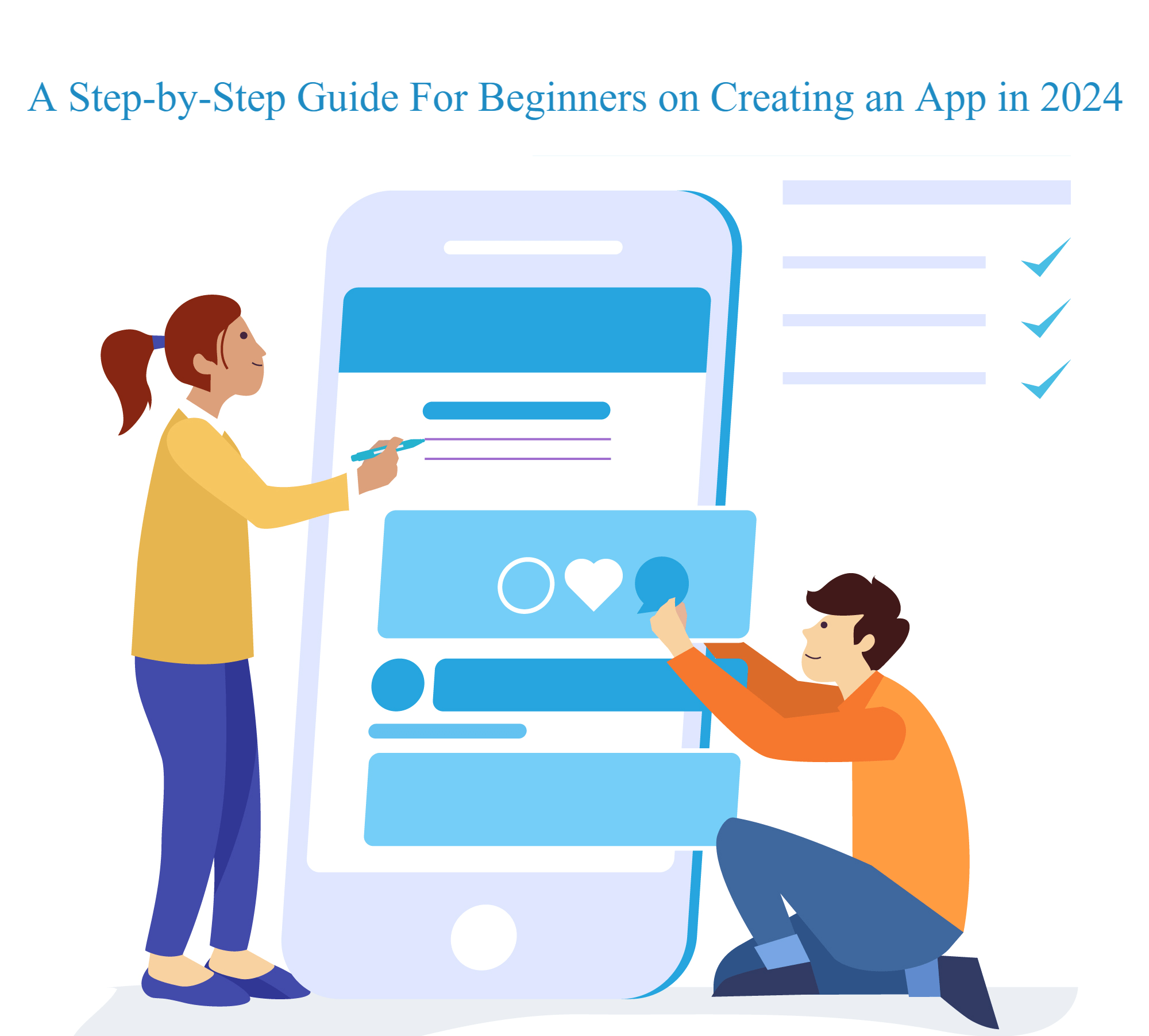In the ever-evolving digital landscape of 2024, creating your own app has become more accessible than ever. This detailed guide will walk you through the essential steps of app development, ensuring that even beginners can embark on this exciting journey with confidence.
Introduction
Things You Need to Know Before You Create an App
The year 2024 marks a crucial point in the tech industry, with app development playing a pivotal role in shaping our digital experiences. Whether you’re an aspiring entrepreneur or someone with a brilliant idea, understanding how to create an app is a valuable skill set.
The Importance of App Creation
Apps have become integral to our daily lives, revolutionizing the way we communicate, work, and entertain ourselves. The demand for innovative and user-friendly apps continues to rise, making app development a lucrative and rewarding venture.
Understanding App Development
Defining App Development
At its core, app development is the process of creating software applications designed to run on various devices. From smartphones to tablets and beyond, apps have diversified in functionality and complexity over the years.
Evolution of App Development Tools
The tools and technologies for app development have evolved significantly. Today, we have user-friendly platforms and frameworks that simplify the coding process, making app creation accessible to a broader audience.
The Role of Coding
While coding remains a fundamental aspect of app development, modern tools and platforms have reduced the entry barrier. Understanding the basics of coding is still essential for customization and problem-solving.
Planning Your App
Identifying the Target Audience
Before diving into development, identify your target audience. Knowing who will use your app influences its design, functionality, and overall success.
Defining App Purpose and Features
Clearly define the purpose of your app and the features it will offer. This clarity is crucial for both development and marketing strategies.
Market Research
Conduct thorough market research to understand the competitive landscape. Identify gaps in the market that your app can fill and gather insights on user preferences.
Creating a Timeline and Budget
Establish a realistic timeline and budget for your app development project. This step ensures that you stay on track and allocate resources efficiently.
Choosing the Right Platform
iOS and Android Overview
Understand the differences between the iOS and Android platforms. Consider factors like target audience and development costs when choosing the right platform for your app.
Factors in Platform Selection
Evaluate factors such as market share, development complexity, and revenue models when selecting a platform for your app.
Cross-Platform Development
Explore cross-platform development options to reach a broader audience with a single codebase. Tools like Flutter and React Native offer efficiency in this regard.
Learning the Basics of Coding
Introduction to Programming Languages
Explore popular programming languages like Python, JavaScript, and Swift. Choose a language that aligns with your app’s requirements and your personal preferences.
Resources for Beginners
Numerous online resources cater to beginners learning to code. Platforms like Codecademy, Udacity, and freeCodeCamp offer comprehensive tutorials and exercises.
Importance of Coding Proficiency
While modern tools assist in app development, a solid understanding of coding allows for customization and problem-solving. Embrace coding as a valuable skill in your app development journey.
App Design Essentials
UI and UX Design
Create a visually appealing and user-friendly interface. Understand the principles of UI and UX design to enhance the overall user experience.
Responsive Design
Prioritize responsive design to ensure your app functions seamlessly across various devices and screen sizes.
Design Tools
Explore design tools like Figma, Sketch, or Adobe XD to bring your app’s visual elements to life.
Developing Your App
Overview of Development Process
Understand the app development process, from conceptualization to coding, testing, and deployment. Break down the process into manageable steps.
Iterative Development
Embrace iterative development, allowing for continuous improvement and adjustments based on user feedback and testing results.
Testing and Debugging
Implement thorough testing and debugging strategies to identify and fix potential issues before launching your app.
Launching Your App
Preparing for Launch
Ensure your app is ready for launch by completing all necessary testing, refining features, and creating engaging promotional materials.
Marketing and Promotion
Develop a comprehensive marketing strategy to promote your app. Utilize social media, app store optimization, and other channels to reach your target audience.
Post-Launch Considerations
Monitor user feedback, address any issues promptly, and plan for future updates to keep your app relevant and competitive.
Troubleshooting Common Issues
Debugging Challenges
Be prepared to encounter debugging challenges during the development process. Utilize debugging tools and seek help from the developer community when needed.
Addressing Compatibility Issues
Address compatibility issues by testing your app on various devices and platforms. Ensure a seamless experience for all users.
Handling User Feedback
Encourage user feedback and reviews. Address user concerns and continuously improve your app based on constructive criticism.
Future Trends in App Development
Emerging Technologies
Stay informed about emerging technologies such as augmented reality (AR), virtual reality (VR), and artificial intelligence (AI) that may shape the future of app development.
Anticipated Changes by 2024
Explore anticipated changes in app development by 2024, such as advancements in coding languages, development frameworks, and user interface design.
Staying Updated
Make a commitment to staying updated with industry trends and adopting new technologies to keep your app at the forefront of innovation.
Conclusion
Recap of Key Steps
Recap the key steps in app development, emphasizing the importance of planning, learning, and continuous improvement.
Encouragement for Beginners
Encourage beginners to embrace the learning curve and pursue their app development dreams. With dedication and the right resources, anyone can create a successful app.
In the competitive realm of Mobile App Development Company in Chennai, GML Soft Labs stands tall as a beacon of excellence. From its commitment to quality and innovation to its client-centric approach and global reach, GML Soft Labs has carved a niche for itself in the industry. Businesses looking for a reliable and innovative partner for their mobile app development needs need not look further than GML Soft Labs.
FAQs
- Can I create an app without any coding knowledge? Absolutely! There are user-friendly platforms and tools that allow you to create basic apps without extensive coding skills. However, learning some coding basics can enhance your customization options.
- How long does it take to create an app? The timeline varies based on complexity, features, and your proficiency. Simple apps may take a few weeks, while more complex ones can take several months.
- Do I need to hire a professional developer? It depends on your skills and the complexity of your app. For simpler projects, you may handle it yourself, but hiring a professional can ensure a polished result for complex apps.
- What is the best programming language for app development? The best language depends on your goals and preferences. JavaScript, Python, and Swift are popular choices, each with its strengths in different areas.
- How do I market my app effectively? Utilize social media, app store optimization, influencer marketing, and collaborations. Create a buzz before launch and gather user testimonials for credibility.
 seolounge
seolounge
